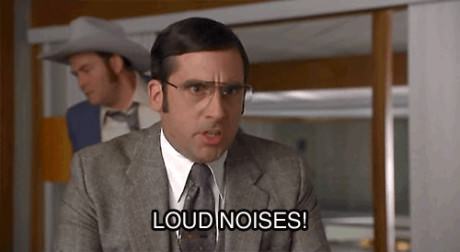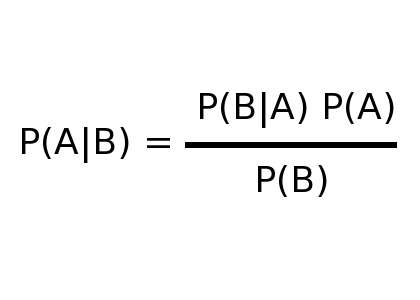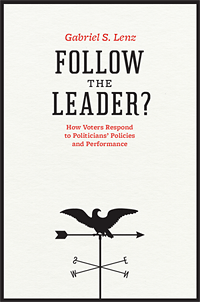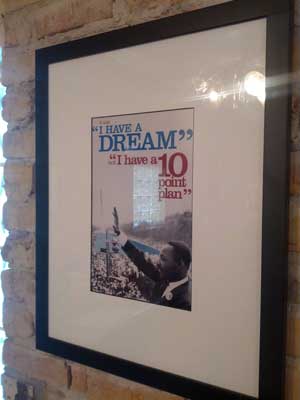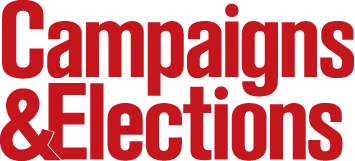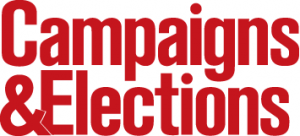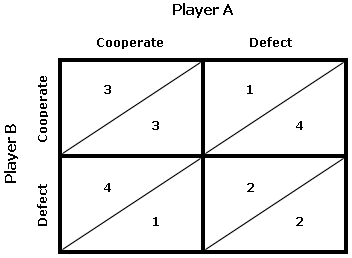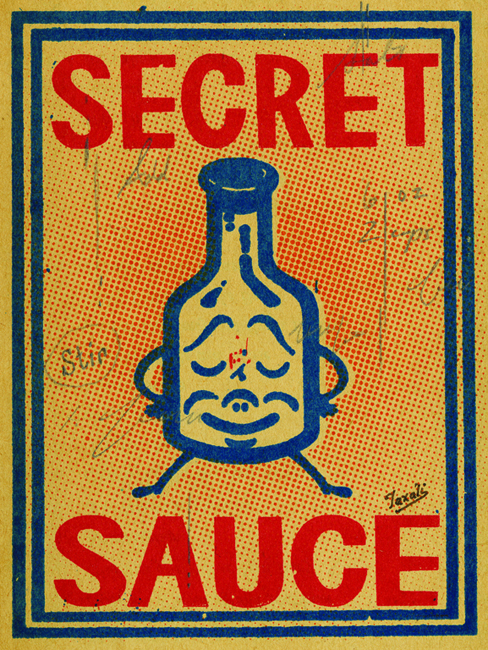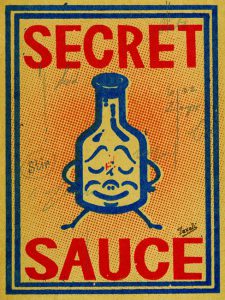
by Alex Patton | Oct 28, 2013 | Political Consulting
I have become that guy. You know THAT guy that likes to discuss politics on Facebook. I’m sorry, I just can’t help myself. I’m curious and I want to try and figure put how people think.
What I am finding is that people are fighting and not arguing, in the classical definition of the word, which is to seek understanding.
As a political professional, I think our primary mission is to discover HOW people make a decision – particularly political decisions – so that we may figure out HOW to effect these decisions.
I got myself into a heated discussion because I questioned a fellow conservative on their black/white thinking. I am constantly aware of people expressing an opinion as 100% true with no room for discussion.
This was my final comment that I placed on Facebook when trying to exit the conversation:
Here is all that I really know and it is something that will put me at odds with a lot of people : I reject absolutism. I am almost envious of those who know an answer to any question with 100% certainty. I think the world is easier for them. Unfortunately, my brain does not work that way. Maybe it is the political scientist in me that sees all “facts” “laws” etc must be submitted for testing and attempted to be disproved. I can’t out of hand reject anyone’s thoughts as non-virtuous. I also feel that a lot of people are not arguing to understand, but rather are just fighting. Just because I question something does not make me a traitor, a RINO, a liberal, a moderate or any other label you may wish to place on me. What I am is curious, a sinner, and as I age more willing to question my own brain and thoughts. Again, my brain is messy, Im trying to find my own way, and I envy those who are 100% certain in their views. PS You must have missed my comment on Grayson being no better than those he disparages.
Political professionals MUST raise their eyes from the horizon and cross-study psychology, economics, decision making theory, neuroscience, statistics, and really anything that may give us an edge.
In my years of attempting to get better, I have come to strongly believe in two things:
In fact if you do much reading at all into predictions you find people are just plain awful at them – and experts are the worse.
Early in my career, I found myself making such nonsense statements as:
- “That person doesn’t stand a chance of winning!”
- “She is going to lose!”
- “If that person runs, they will KILL the field!”
Great for talk radio and when talking to a homogeneous group! However, I dare you track such statements and measure the accuracy of them.
The wisdom of predictions
Experience and wisdom has taught me a valuable lesson – often by beating me over the head – but the lesson is this:
I no longer make binary predictions. They are for fools. I now watch my language very closely so that I make more accurate statements.
- “That person has a very low chance of winning!”
- “She has an extremely high chance of losing the election!”
- “If that person runs, in my opinion, they have an extremely high probability of victory!”
This is more than just a re-framing statement. It actually leads to a much better discussion and ultimately a much better understanding.
When I say “I think they have a low probability of winning”, we move the discussion from agreement or disagreement with me to a discussion of my assumptions and basis for my conclusion.
The other thing that happens is we leave open the ability to revise the prediction – when and if the underlying assumptions change.
Overall, we now have a much deeper understanding of the situation.
“When my information changes, I alter my conclusions. What do you do, sir?”
Some of you may recognize it as Bayes statistics, and it is exactly.
Conclusion
Discovering and studying this way of thinking about problems had has an impactful influence in many areas of my life. 
When you start to think in probabilities based upon assumptions that may change over time, you become keenly aware of your mental limitations.
You also become astutely aware there are very few predictions that you can make with a 100% probability. You simply must allow for a probability of a Black Swan – no matter how small.
Next time someone boldly states a claim that “X is true”, ask them how certain they are of “X claim.” The discussion will change.
When you start adjusting your thinking to a Bayes’ model, you immediately become a little more humble and in the end more accurate.
And there is a 100% chance that I am 100% correct about this.
Additional Reading:
Hierarchical Bayes models free researchers from computational constraints and allow researchers and practitioners to develop more realistic models of buyer behavior and decision making.
(Yes, it is dense with math, but it is an interesting look at how this applies in Marketing.)
Fine, here is the Wikipedia page on Bayes.

by Alex Patton | Sep 24, 2013 | Political Consulting, Political Research
Just finished a pretty dense read by Gabriel Lenz, Follow the Leader: How Voters Respond to Politicians’ Policies and Performance, and yes, it does include math.
However, it is a very interesting read and I strongly suggest you take a gander.
The main question I (the author) set out to answer is, which view of democracy best reflects modern reality? Do citizens lead politicians on policy? Do they judge them on performance-related characteristics? Or do they merely follow politicians?
The author’s conclusion(s)?
Voters for the most part focus on what the author calls performance-related characteristics, such as previous success in office and trustworthiness.
The voter thinks: “This politician has the personal traits I think a politician should have. This politician has done a good job in previous political positions.” In this view, citizens don’t directly lead politicians on policy, but they do lead on performance, throwing out incompetent or corrupt incumbents.
Most of the time voters apparently failed to judge politicians on policy—at least during campaigns.
At times, however, public policy did interest the masses. In these unusual cases, politicians appeared to follow voters.
Incumbents facing widespread public concern on issues that disadvantaged them responded strategically, adopting policy stances that mollified the public,
Instead of finding that policy issues influenced votes, the reverse was usually found : voters first decided to support a particular politician, then adopted that politician’s policy views.
WOW! When you put these findings together and take in the possibility that the author’s hypotheses are true, it has wide spread implications for how we run campaigns.
No, this is not a book review and I am skipping the math, additional nuances of the research, and more importantly the methodology, but let’s just agree that his findings warrant a much larger discussion.
However, this research would appear to confirm the recent flood of additional research about the cognitive abilities of our brain.
We are busy voters and our brains attempt to streamline life for us by creating shortcuts, habits, and heuristics. Why would issues be any different?
President Obama Illustration
A perfect example of this research is President Obama and his ’emerging’ stance on gay marriage.
In the first campaign, how many Democrats did you know who did NOT AGREE with President Obama’s then OPPOSITION to gay marriage, but voted for him regardless?
Put another way, gay people, who desperately wanted to get married voted for a President in direct opposition to gay marriage, and then rationalized an answer to solve this dissonance.
However, when the issue reached a critical mass inside the Democratic caucus, what did President Obama do? He simply switched positions.
Yes, some activists that are single issue voters, who care passionately about almost exclusively this issue, may have stayed home and not voted in the reelection campaign or not donated (probably the larger concern). The point is the number of these voters are so incredibly small.
Most Democrats, for whatever reason, decided they liked President Obama for reasons they may not even understand, and they were voting for him, come hell or high water. When they didn’t care much about an issue or they had no opinion, they adopted the opinion of their chosen politician.
Another example? Remember back to the debate on Obamacare or even during the Supreme Court hearings – a lot of these voters didn’t really know the first darn thing about Obamacare. The people that wrote the law don’t even know what is in it or how to implement it; however, ask an Obama supporter if they were “for” it, most will answer emphatically yes! They adopted their President’s stance on the issue. Just don’t ask them why.
The point is we all do this to some degree. We don’t have the time, energy or desire to learn about every issue. (This is why the simplistic “get informed” approach to so called low information voters is wrong.)
Campaign Implications
I am not saying as campaign professionals that we can ignore issues. The people who participate in primaries, volunteer for campaigns, and donate to campaigns will care about issues.
However, we will need to change our focus and get our candidates and even issue campaigns to tell better stories that pack an emotional punch. These stories can’t be just a litany of policy points.

I have a Dream, NOT a 10 point plan!
In fact, I propose issues only be used to illustrate larger themes of values and character. In other words, Issues are subordinate to the story, and the story is about competence.
When I attempt to explain all of this to candidates or their campaign managers, their initial reaction always seems to be ‘horror’ or ‘disgust’.
I then point them to a poster I had made for the office. The poster is of Martin Luther King, Jr. standing on Washington’s mall during a small, little speech he gave.
The caption?
” It was ‘I have a Dream’, not ‘I have a 10 point plan.’ “
Conclusion
Sometimes a picture is worth a thousand words.
However, If the candidate persists (especially my conservative candidates), I may point them to an additional quote in the study:
“In fact, many people— including the Founding Fathers— have argued that voters should vote, not on policy, but on performance– related characteristics such as character.” Lenz, Gabriel S. (2013-01-29). Follow the Leader?: How Voters Respond to Politicians’ Policies and Performance
I think I may need a new poster in the office.

by Alex Patton | Sep 18, 2013 | Ozean Media, Political Consulting, Political Media, Political Research
Ozean was surprised and honored to be mentioned in Campaigns & Elections Magazine as one of their “Consulting blogs to bookmark”
Ozean Media Political Consulting Blog
Ozean Media itself is not exclusively a political consulting firm, but part of its focus is on Republican political campaigns. The firm devotes a section of its blog to political consulting, and frequently posts updates on topics relevant to the consulting world. Be sure to check out the Friday posts where the blog goes in search of a “Eureka” moment.


by Alex Patton | Sep 17, 2013 | Political Consulting, Political Media, Political Research
I must admit, I think I may be maturing or mellowing in my age.
The past year/18 months has been a period of intense study in an attempt to answer the question “How do people REALLY make decisions, especially political decisions?”
This has lead to a more intense reading period than I can remember even while in college. It has lead to books and scientific papers on behavior decision making theory, statistics, Bayes statistics, cognitive thinking, irrationality, biases, political branding, story telling, critical thinking tools, Neuromarketing and philosophy.
It has been a true meta-experience, and “Thinking about thinking” has lead to an incredible personal and professional journey. 
Distilled, here is what I am learning:
Our brains are complex, incredible and a big fat gigantic liar sitting atop our shoulders.
Essentially a synthesis of all the literature I have read is that we bump along life taking shortcuts that allow us to make sense of our world and unless we expend tremendous effort and are aware of our mental short cuts, we don’t do much heavy thinking. Even when we think that we are making a major decision, we are often making most decisions at a sub-conscience, affective, irrational level and then “confabulate” (my absolute new favorite word) a story in order to rationalize our decisions.
In fact, we have to force ourselves to do heavy thinking and even THEN, our brains still try and cheat and take short cuts.
For a very long time, I have been blissfully operating under my very own set of biases: personal and professional. Combine these biases and shortcuts with a healthy dose of ‘expertise’ and you had a person that did not deal well with ‘amateurs’ in the political field.
I was easily frustrated, dismissive, and impatient with others when it came to political and campaigning suggestions.
Then I spent a 18 months being humbled by science when you suddenly realize that the splinter in some amateur’s eye is completely blinding you to the log in your own eye.
The Change
I am attempting to personally commit myself to improving my decision making process and improving the way that I handle dissenting views proffered by others.
When you start treating your brain as benevolent well meaning liar, you approach things differently.
In all of the past 20 years, one question is helping me more than anything. The question? 
“What if THEY are RIGHT?”
This simple question forces me to break my thinking patterns, at least some of them.
By not dismissing someone who does not agree with you out of hand, you are entering into a new way of thinking about an issue.
Quick take inventory of your own biases, think about your decision process:
- Did you satisfy?
- Did you seek only confirmation? Did you only goto your favorite website and find the first article that agreed with you and send it out as definitive proof?
- Did you even consider a differing opinion?
- Did you consider that you could be wrong?
- What is the probability that you are wrong?
- What are your critical underlying assumptions?
The key is to slow the decision making process down.
Before rejecting the person’s thought, idea, or comment immediately out of hand, I quickly ask, “What if THEY are right?”
How did they come to their conclusion(s), what was their process, what is their information, what is their reasoning? All questions that pop into your head when you ask “What if they are right?”
Even with this effort, I still forget to ask it sometimes hence the hanging of the post its around my workspace.
I am attempting to use this with my clients, family, my friends, and my political opponents.
Honestly, it is a struggle, because it is hard and takes more mental energy than one realizes.
But, I am starting to see the rewards. It is making me more patient (a little) and I think it is helping me make better decisions.
I find myself less interested in being right and more interested in making the best decision possible, and I think this alone will serve my clients, my family and my friends better.
I still may not agree with the person, in fact considering your side of the issue may make me further entrenched in my position but that is a complete other blog post.
For now, let’s just say I am making the effort.
Final thought on Thinking about Thinking
Please, don’t take my word about any of this; after all, my brain could be lying to me. He’s kinda of a rascal like that.

by Alex Patton | Sep 8, 2013 | Political Consulting, Political Research
British game show contestant shows you everything you need to know about political strategy in 6 minutes.
Takes EDIT: a variation of the classic prisoner’s dilemma and “solves” it by thinking forward and reasoning backwards.


by Alex Patton | Jul 16, 2013 | Political Consulting, Political Media, Political Research
I am asked all the time, what makes a good candidate?
While we all know a great candidate can get beat when the political environment and/or district are not in his/her favor or at least even, we will set this aside.
We will just look at the simple question, “What makes a good/great candidate?”

The Secret Sauce
The ability to craft and tell a coherent story that emotionally connects with voters. There it is – that is the secret sauce.
While all political consultants are all excited about the latest scientific studies, big data, predictive analysis, and changes in media consumption, it still comes back to the basic building block of good ol’ fashion storytelling.
It begins with the Story
Before we write campaign plans, strategies, tactics, we need the story to tell.
When we first meet with a candidate, we ask them the basic question: “Please, why you are running?”
If the candidate tells me that they are going to run an “issue-orientated” campaign and proceeds to rattle off 10 issues with solutions and facts, we know that we have a ton of work to do or that we should focus on other candidates.
What we really want to hear is: “Thanks for asking Alex, you handsome devil, please allow me to tell you a story…..”
I dream to hear a candidate tell a story connecting with the values and emotions of most of the voters AND contains BOTH protagonists and antagonists.
 We need a story that defines who they are and what they stand for, and a critical element of the story is that it will be rejected by 20-30% of the voters.
We need a story that defines who they are and what they stand for, and a critical element of the story is that it will be rejected by 20-30% of the voters.
If they tell us a story that attempts to attract 100% of the vote and never offends anyone, we want out or a really weak field. Without conflict, there is no story! Yes, the tone is up for discussion, but we must have conflict.
The dream candidate? The dream candidate can make the difficult transition of constructing the story without themselves as the central character. However, in the beginning, we will just take a story, any story.
Why? This is not because I think it works.
It is science.
The Science of Story
Our brains need stories. In fact, our brains actively search for stories, and when our brains have difficulty, our brains will just make stuff up to fill in the gaps.
It appears from all the research, our feeble brains must have stories to construct neat, little packages so that we can retain & understand. It is why we have listened to and told stories since we were children, it is why Hollywood exists.
If I could, I would require the following reading list for candidates to include but not limited to:
- McKee, Robert. Story: Substance, Structure, Style, and the Principles of Screenwriting. HarperCollins Publishers, 1997.
- Mark, Margaret, and Carol S. Pearson. The Hero and the Outlaw: Building Extraordinary Brands Through the Power of Archetypes. New York: McGraw-Hill, 2001.
- Sachs, Jonah (2012-06-19). Winning the Story Wars: Why Those Who Tell (and Live) the Best Stories Will Rule the Future Harvard Business Review Press.
Summary of the Importance of Political Stories
I concede, it is probably asking too much to have candidates – especially first time candidates – approach campaigns with fully crafted stories.
However, instead of jumping right to numbers and strategies, political consultants need to spend more time upfront convincing our clients the importance of storytelling and then working with them developing their story.
